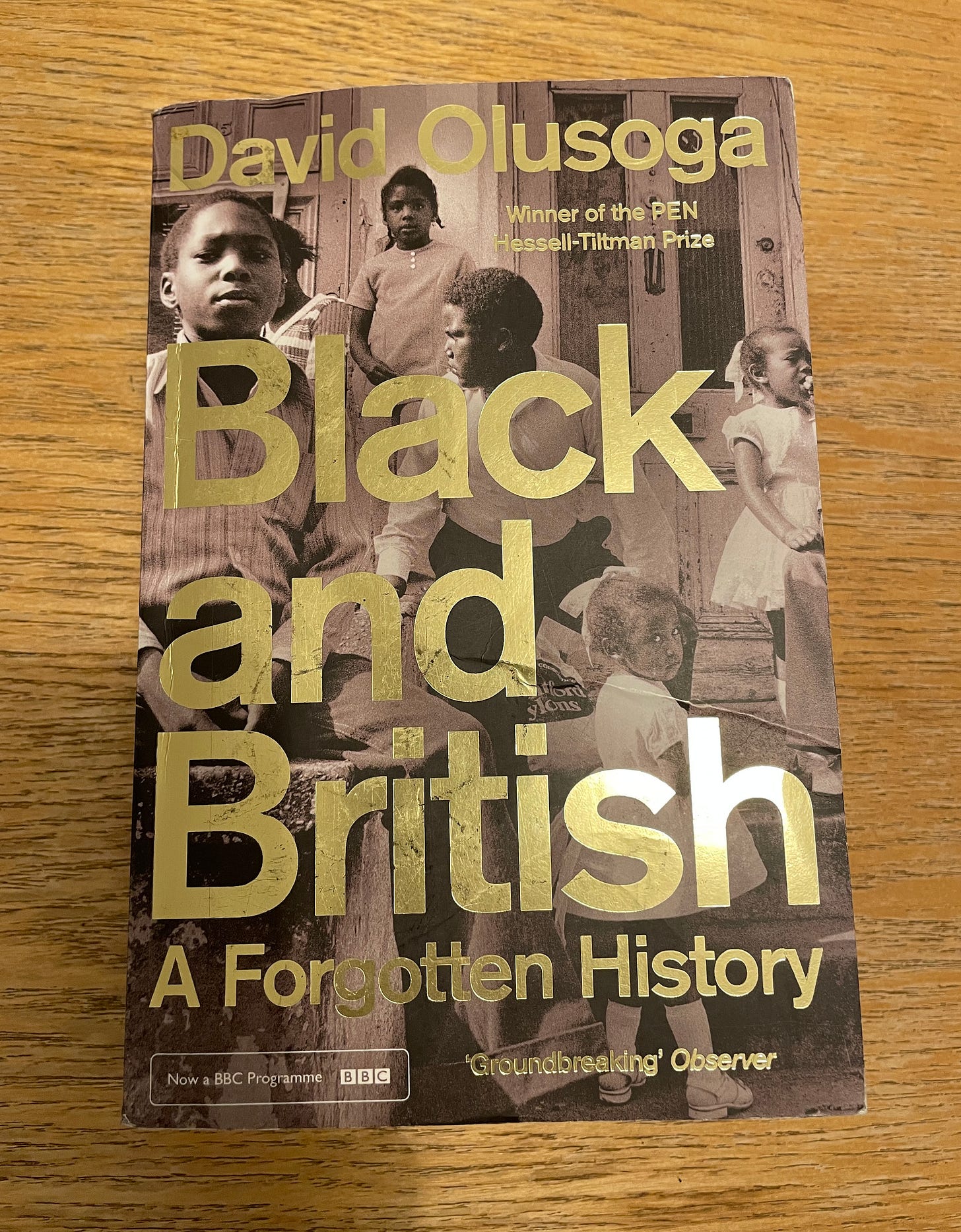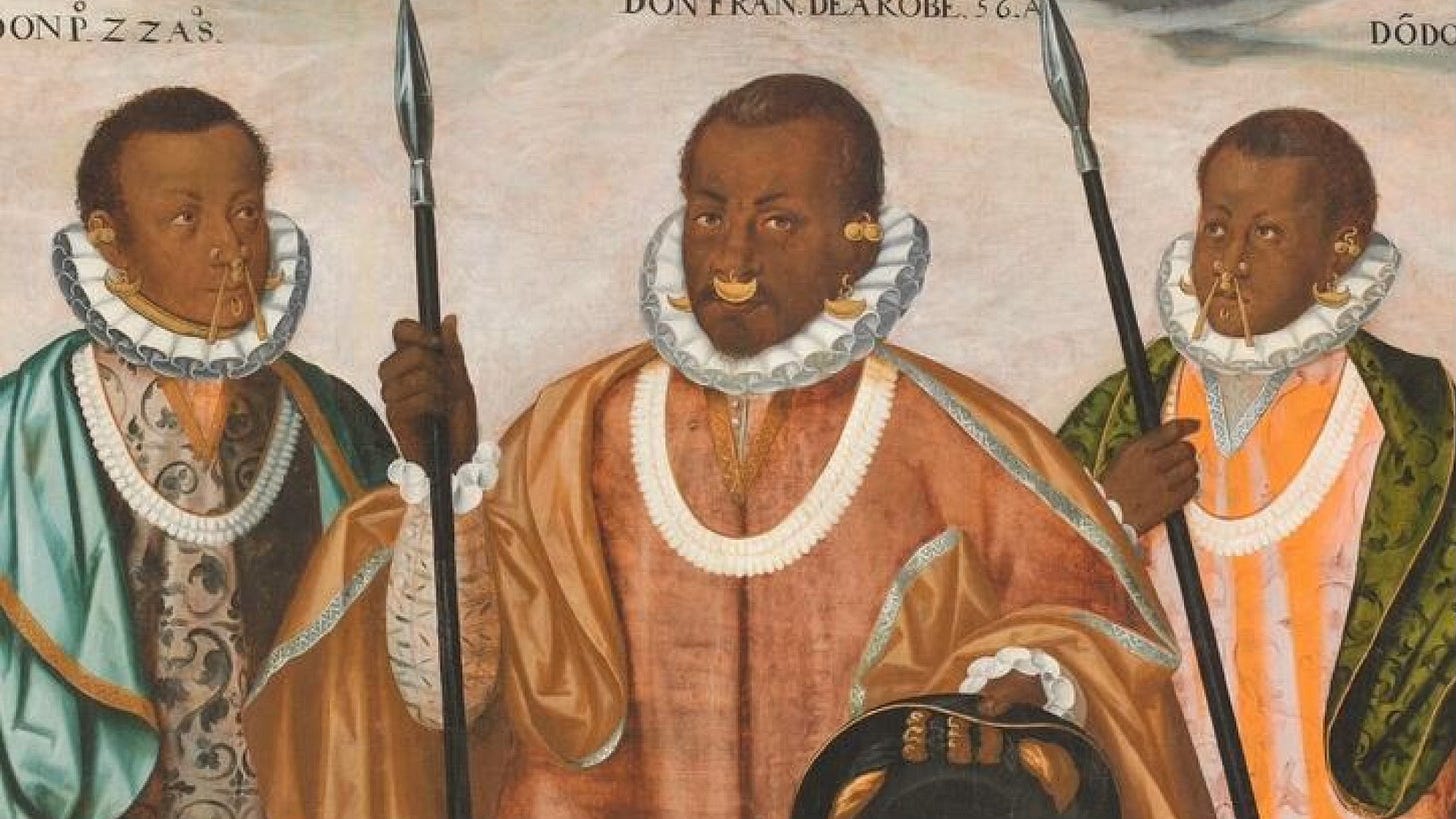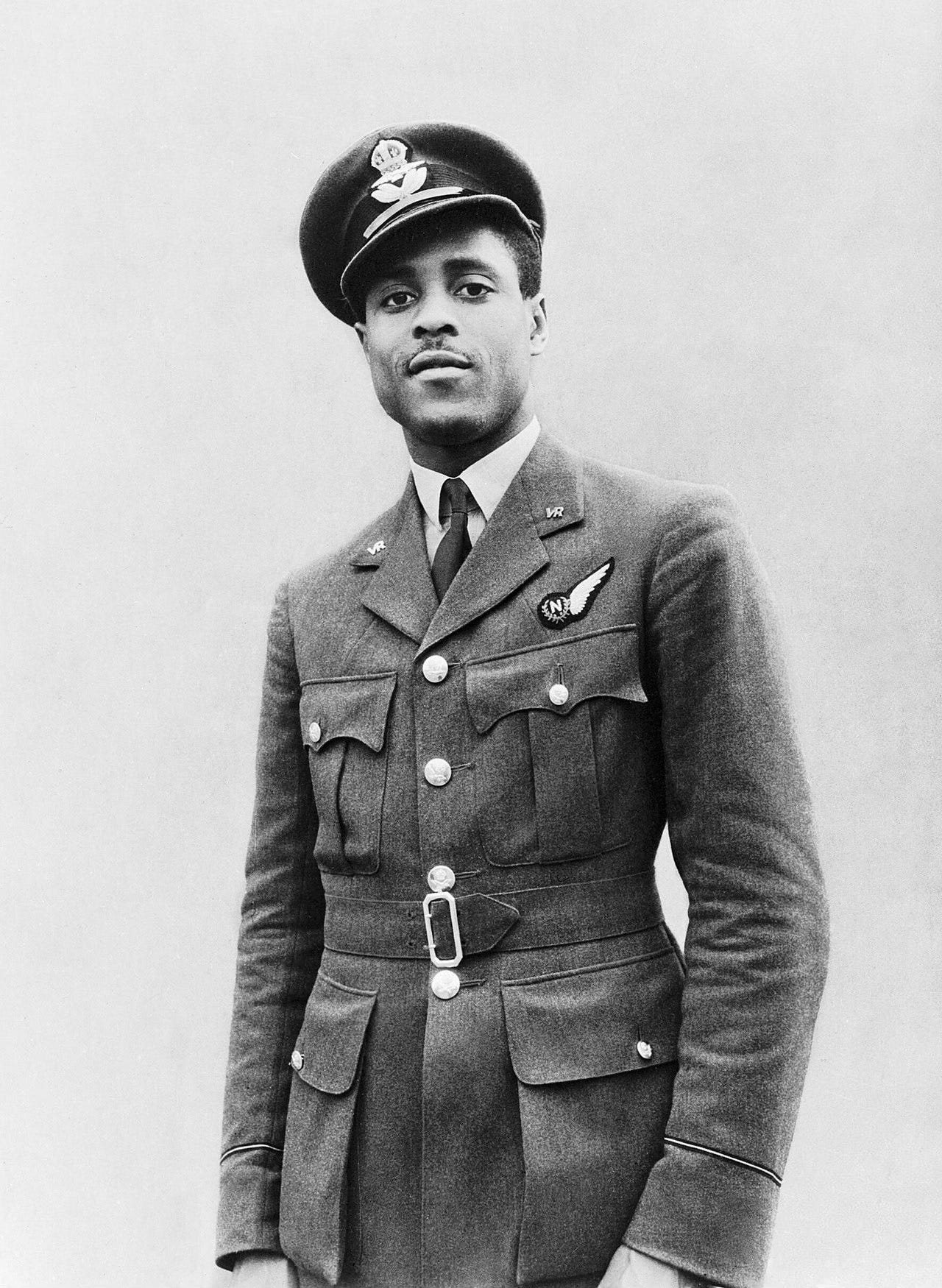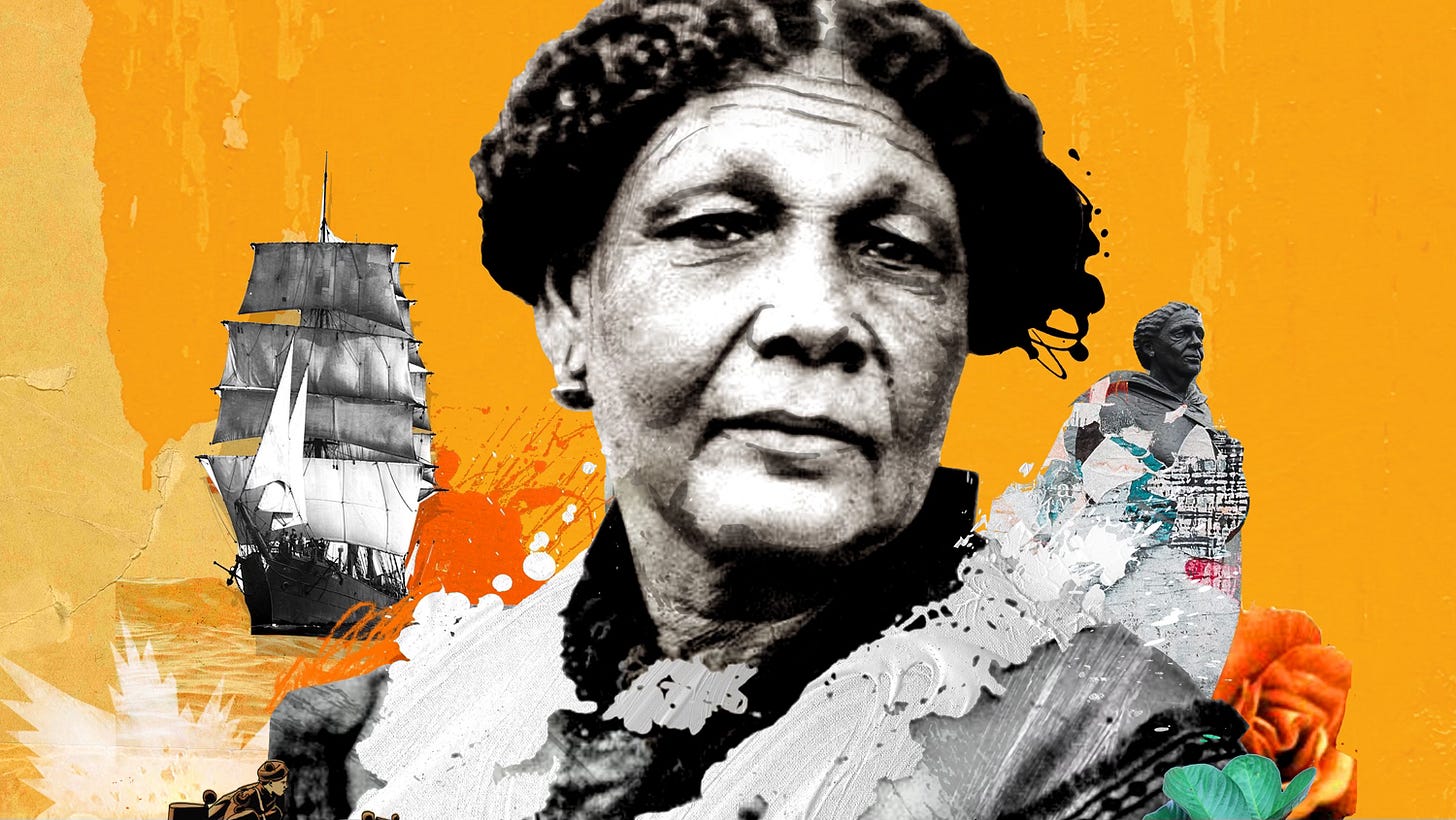Once upon a time is often how a story can begin, but who is telling the story?
This year across many platforms, Black History Month is exploring the significant shift towards recognising and addressing the narratives of Black history and culture.
It’s important to acknowledge the inaccuracies and misconceptions presented by ‘His-story' while celebrating the achievements and contributions of so many black individuals.
I’m sometimes conflicted with the idea of Black History Month, as though the untold stories and overlooked impact can be railroaded into 30 days once a year. Yet it is an important start and a commitment to change. The conversations and discussions exploring Black heritage are very complex, plus increasingly hard to define.
I sincerely believe it begins with awareness and recognition of the inaccuracies. We can frequently be instructed to ‘do the research’. So what happens when the data is skewed or distorted? This is where discussions and reflection are essential.
Black & British
Black & British (by David Osoluga) is a seminal book - essential reading that explores several historical inaccuracies and unspoken contributions.
The history of Britain is a tapestry woven with diverse threads of cultural and societal contributions. Among those threads, the influence and legacy of Black Britons have often been marginalized, overshadowed by prevailing narratives that favour the stories of empire builders and traditional elites. In his seminal work Black & British, David Olusoga unearths a hidden history, one that is both complex and necessary for a fuller understanding of Britain’s past. Through his meticulous research, he exposes the many ways in which African and Caribbean people have shaped the fabric of British society.
The Early Presence: Blackamoors in Tudor England
The misconception that people of African descent only began arriving in Britain during the era of the slave trade is one of many inaccuracies Olusoga addresses. As far back as the Tudor period, Black individuals were a visible and integral part of British society. The term “Blackamoors” was used to describe Africans living in England during this time, many of whom served in the households of wealthy aristocrats. While their presence is often overlooked in historical accounts, they were a distinct and valued part of court life.
Queen Elizabeth I’s court even had individuals of African descent, contributing to daily courtly functions and offering insight into how Britain was connected to Africa through trade, diplomacy, and exploration. These Blackamoors challenged modern assumptions about race relations in the Tudor era, revealing a more interconnected world than many may have believed.
The Invisible Soldiers: Black Britons in Britain’s Wars
The contributions of Black soldiers in Britain's military efforts are another chapter of history often written out of textbooks. When we think of Britain’s most storied battles, such as the Battle of Trafalgar or the two World Wars, the faces that typically come to mind are white. However, Black Britons not only fought but often made critical contributions to the success of these campaigns. For example, during the Battle of Trafalgar in 1805, African-descended sailors were part of Admiral Lord Nelson’s crew. These men, whose names history has largely forgotten, were integral to maintaining the British naval power that helped secure the empire's dominance.
Similarly, during both the First and Second World Wars, many Black men from Africa and the Caribbean volunteered to fight for Britain. Despite their bravery, these soldiers often returned to societies that refused to acknowledge their sacrifices or include them in the national remembrance. However, their contributions were far from insignificant. In the trenches of World War I, Black soldiers stood shoulder-to-shoulder with their white counterparts, enduring the same brutal conditions. Many were decorated for their service, though their stories remained untold for decades. It is only recently, through the work of historians like Olusoga, that their bravery is being recognized and included in Britain’s wartime narratives.
The Indomitable Mary Seacole: A Forgotten Heroine
One of the most remarkable figures in Black British history is Mary Seacole, a name that has only recently begun to receive the widespread recognition it deserves. Born in Jamaica to a Scottish father and Jamaican mother in 1805, Seacole was a woman of exceptional courage and vision. During the Crimean War (1853-1856), Seacole travelled to the war zone, where she established her own field hospital and provided essential medical care to soldiers. Unlike Florence Nightingale, whose name became synonymous with the nursing profession, Seacole’s efforts were largely ignored by the British establishment at the time. Yet her work was no less significant.
Seacole was more than just a nurse; she was a healer who utilized both traditional Jamaican and Western medical practices. Her “British Hotel,” a self-funded endeavour, became a haven for wounded soldiers who affectionately referred to her as “Mother Seacole.” Across battlefields she would tend to soldiers, risking her own life to save others. Despite facing racial prejudice and being overlooked for official nursing positions, Seacole’s determination and compassion made her a beloved figure among the men she treated. She was recognized by those she cared for, if not by the British establishment, and her legacy today serves as a symbol of resilience and service.
It wasn’t until the late 20th century that Seacole’s contributions began to be widely acknowledged. Statues, commemorations, and a revival of her story have placed her alongside Florence Nightingale as a pivotal figure in the history of nursing. Today, her name is synonymous with not only professional excellence but also the breaking of racial barriers in a field dominated by prejudice.
“Beside the nettle, ever grows the cure for its sting” - Mary Seacole
The Unseen Architects of Empire
Beyond military and medical contributions, Black Britons have long been integral to the very construction and development of the British Empire. The wealth that fueled Britain’s rise as a global superpower was heavily dependent on its colonies, particularly in the Caribbean. Black slaves, and workers, toiled in the sugar plantations which generated immense wealth for British landowners. This wealth funded the construction of Britain’s grand cities, its palaces, and its institutions.
The impact of this labour, though crucial, has often been erased from the narrative of Britain’s economic success. Figures like Ignatius Sancho, an 18th-century composer, actor, and writer, worked tirelessly to challenge the perception of Black people as inferior. Sancho was the first Black Briton to vote in a parliamentary election, and through his works, he exposed the brutal realities of slavery while advocating for the humanity and rights of Black individuals. His legacy is a reminder that Black Britons were not merely subjects of empire but also agents of change, intellect, and creativity.
Knowledge of self is an essential component of growth and freedom. It’s hard to see who you truly are if the story is hidden,
“The discovery of these things and all are well-hidden. But when you in denial of self it is forbidden, that's the truth.”
- Pharoahe Monch
The Power of Reclaiming the Past
It can be uncomfortable and painful yet essential to rethink the narratives we have been taught. Black people have always been a part of Britain’s story, from the earliest days of empire to the world-shaping conflicts of the 20th century. The experiences of Mary Seacole, the Blackamoors, soldiers of Trafalgar and the world wars are not merely footnotes—they are central to understanding the full picture.
Reclaiming these narratives is not simply a matter of historical correction; it is a way to honour the contributions of those who have been left out. By acknowledging their bravery, achievements, and sacrifices, we can begin to tell a fuller and more inclusive story.
Let’s challenge the myths and celebrate all our heroes.









